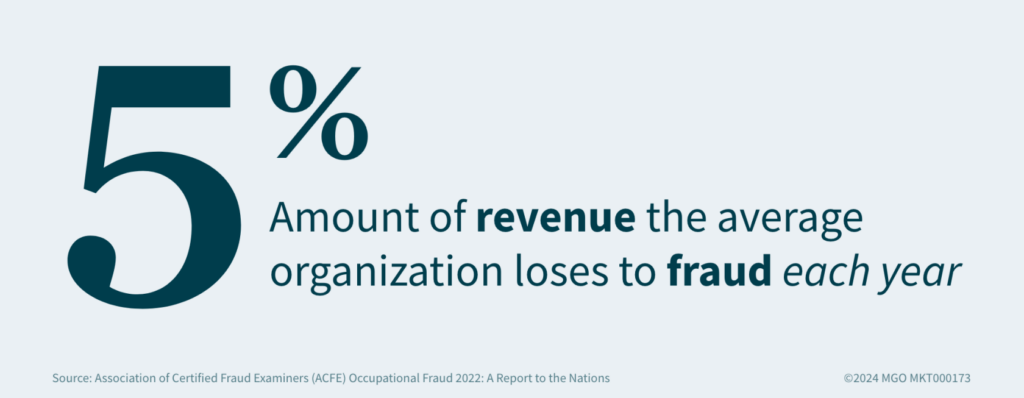Key Takeaways:
- Identify unexplained payments or gifts to officials as potential signs of bribery and corruption.
- Monitor procurement for abnormalities like inflated pricing or bid rigging to maintain fair practices.
- Maintain transparency in transactions to prevent undisclosed kickbacks or facilitation payments.
—
Maintaining integrity is paramount to the long-term success of any business. Yet, bribery and corruption remain pervasive issues across industries — undermining trust and fairness in transactions. Fraudsters exploit their influence in business dealings to gain illicit benefits for themselves or others, often at the expense of their employers and the rights of others.
Warning Signs of Bribery and Corruption
Recognizing the red flags of bribery and corruption is crucial for safeguarding your business. The signs may include:
- Unexplained payments and gifts — Watch for unfamiliar payments, gifts, or gratuities to government officials, regulatory authorities, or business partners. These can be attempts to secure favorable treatment or influence decision-making processes. Such actions often violate ethical standards and legal regulations.
- Lack of transparency in transactions — Be wary of undisclosed commissions, kickbacks, or facilitation payments. These hidden arrangements can mask corrupt practices and lead to significant financial and reputational damage.
- Non-compliance with policies and regulations — It is essential to comply with anti-bribery and corruption policies, regulations, and legal requirements. Non-compliance can be a sign of deeper issues and can expose your organization to legal repercussions and loss of credibility.
- Abnormalities in procurement processes — Pay attention to abnormalities in procurement, such as sole source contracts, inflated pricing, or bid-rigging schemes. These practices benefit certain vendors or individuals, undermining fair competition and integrity.
- Unexplained changes in business practices — Sudden shifts in business relationships or unexplained changes in practices can indicate corrupt activities or unethical behavior. These changes often aim to conceal fraudulent activities and protect those involved.

Why You Should Address Fraud, Bribery, and Corruption
Navigating the complex landscape of fraud, bribery, and corruption requires careful guidance and robust systems. Here is why your organization should take a proactive approach to addressing these issues:
- Fraud, bribery, and corruption can severely damage your company’s reputation and financial stability. Regular fraud risk assessments identify vulnerabilities in your business processes, enabling risk mitigation and asset protection.
- Developing and implementing anti-bribery and corruption policies is crucial for maintaining ethical standards and legal compliance. Clear policies guide employee behavior and demonstrate your commitment to integrity and transparency.
- Training and educating your staff on recognizing and reporting red flags empowers your team to act as the first line of defense against unethical behavior. A well-informed workforce helps maintain a culture of integrity. Continuous monitoring and regular audits are vital for ongoing compliance and detecting unethical behavior early. Vigilance prevents small issues from escalating into major problems.
- By uncovering hidden fraud, you can address issues promptly and take necessary legal actions to safeguard your organization. Forensic accounting is essential for investigating suspicious transactions. The longer it takes you to uncover fraud, the greater the damage may be.
Bribery and corruption pose significant threats, but these risks can be managed with vigilance and proper support. Recognizing red flags and implementing strong anti-fraud measures can help your organization protect its integrity and foster trust among your stakeholders, employees, and customers.

How MGO Can Help
Equip your company with the resources needed to effectively address fraud, bribery, and corruption. With services ranging from risk assessments and forensic accounting to policy development and staff training, we can help you identify vulnerabilities, maintain compliance, and establish preventive measures. Reach out to our team today to learn more.
This article is part of our ongoing fraud series, “Alert Signals: Uncovering the Spectrum of Fraud,” aimed at educating businesses on identifying and preventing fraudulent activities. Read the previous articles in the series about detecting financial reporting fraud and asset misappropriation now. Stay tuned for more insights and strategies to protect your organization.